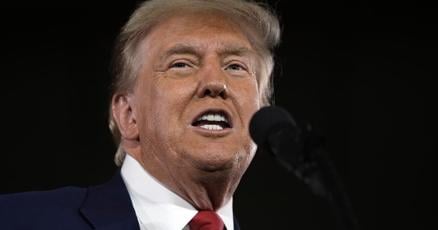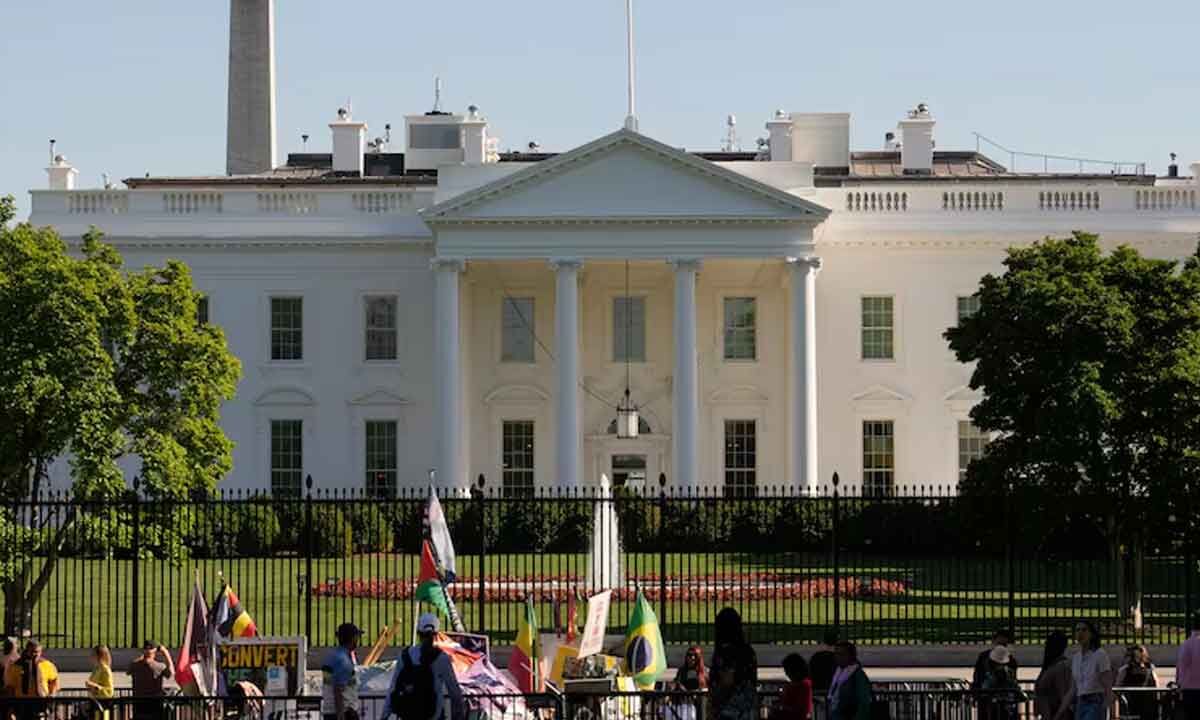US House Approves Extensive Foreign Aid Packages Amidst a Wave of Geopolitical Tensions
The US House of Representatives passes a formidable foreign aid package aimed at reinforcing alliances, amidst bipartisan debates and global responses.
Published April 22, 2024 - 00:04am

Image recovered from wnd.com
The US House of Representatives, led by Speaker Mike Johnson, approved a robust foreign aid package, prompting a mix of political support and global criticism amidst increasing geopolitical tensions.
The aid package, which conglomerates earlier separate bills, earmarks $95.3 billion to bolster allies including Ukraine, Israel, and Taiwan. Amongst these are $60.8 billion for Ukraine, aimed at replenishing US weapon reserves and aiding Ukraine with advanced defense systems to counter Russian aggression.
Israel is set to receive $26.4 billion, which includes significant allocations for defensive armament, including $4 billion for missile defense systems such as the Iron Dome. Congressional sources reported that Israel has requested additional ammunition for tanks and military vehicles amid escalating Middle East tensions, reflecting the urgency in bolstering regional defenses.
Taiwan is allocated $8 billion in what represents a clear move to counteract China's aggressive posturing in the Indo-Pacific region. Russia and Palestine have condemned the aid, citing it as an aggravation of global crises and an interference in internal affairs, which they claim will escalate tensions dangerously.
Furthermore, the package includes provisions to pressure major adversaries like Iran and China, one of which stipulates the potential forced sale or ban of TikTok in the US if ownership by the China-based company ByteDance persists.
The decisions by the House have sparked debate in the Senate and among international actors. Republican Ohio Senator J.D. Vance labeled the package without border security provisions a 'massive betrayal.' Meanwhile, Russian spokesperson Maria Zakharova has decried the move on Telegram as exacerbating global crises. Similarly, Palestinian authorities have warned of dire consequences in the region in response to aid directed at Israel.
Despite internal Republican dissent in the House and mixed global reactions, US President Joe Biden has expressed strong support for the aid package, emphasizing the projection of American leadership and the necessity of swift enactment. His administration is yet to review Israel's request for additional munitions.
While the US legislative process unfolds, European allies have also been examining their positions. In Germany, for instance, the pressure mounts to enhance aid to Ukraine, with German politicians across the political spectrum urging significant action to support Ukraine and by extension, European security.
The suite of aid bills reflects the multifaceted nature of current geopolitical entanglements and showcases the dynamic but contentious role of US foreign policy during a time of heightened geopolitical reassessment.
The foreign aid package, which was put together by the House, exhibits an understanding of the delicate balance of power that shapes international relations. The allocation of funds to Ukraine underscores the US commitment to support democracies resisting authoritarian aggression. This substantial aid is not only a humanitarian effort but also a strategic investment in the stability of Europe. By providing Ukraine with enhanced capabilities, the United States aims to shore up a cornerstone of the European security landscape.
With tensions surrounding Taiwan showing no signs of abating, the $8 billion allotment serves as a message of unwavering support to the island and a deterrent to potential Chinese assertiveness. The financial backing for Taiwan aligns with the US strategy of a free and open Indo-Pacific and sends a signal about America's intention to maintain a significant presence in the region.
The scope of the aid package goes beyond military assistance. It also includes economic, humanitarian, and development aid aimed at bolstering democracies, countering disinformation, and supporting human rights globally. This broad approach underpins the United States' long-held objective of fostering a world order built upon democratic principles and the rule of law.
Potential repercussions of the bill also include economic levers to pressure adversaries. The possible actions against TikTok reflect burgeoning concerns over data security and the influence of the Chinese Communist Party in American digital spaces. If the legislation pushes through with its current provisions, this could result in significant technological and commercial shifts, further inflaming US-China relations.
The debate surrounding this foreign aid package extends into wider discussions about the US role on the global stage. Proponents of the package argue that such measures reaffirm the country's leadership in advocating for democratic values and responding to authoritarian challenges. Detractors, on the one hand, question the prioritization of international aid in the face of domestic challenges, including border security and economic concerns at home.
The Biden administration's support for the package mirrors the president's broader foreign policy goals. These include reaffirming alliances, engaging with international partners on challenges like climate change and cybersecurity, and competing strategically with major powers like China and Russia. The president's stance, buttressed by the support of the House, reveals a drive to employ foreign aid as a key instrument in America's global strategy.
In parallel with US legislative developments, NATO member states, including countries like Germany, play a significant part in reinforcing Ukraine's defense. This coordination underlines a united front among Western allies in response to the Russian invasion of Ukraine, with implications for the broader NATO strategy and defense commitments.
As deliberations continue in the US Senate and reactions pour in from across the world, the broader implications of the approved aid by the House are already shaping global politics. Whether the Senate will follow the House's lead or introduce substantial changes remains to be seen. However, the current state of the aid package represents a firm intent by sections of the US government to leverage its diplomatic and financial might in the ongoing reordering of international alliances and power structures.

:quality(70):focal(2955x2121:2965x2131)/cloudfront-eu-central-1.images.arcpublishing.com/irishtimes/5WLWVKFX37G7NCEMVVEDY2T62U.jpg)





